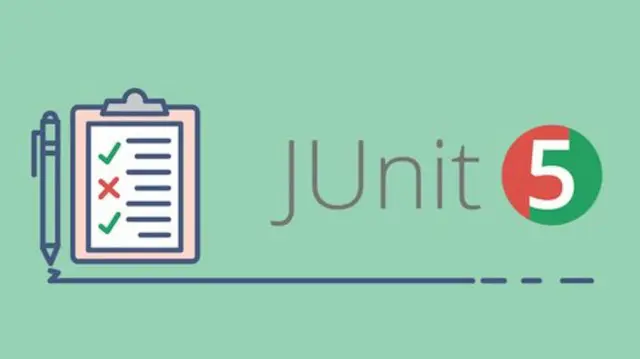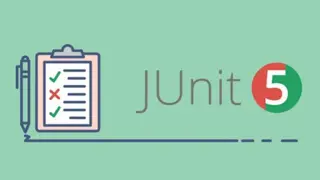
JUnit 5 Testing Framework
Self-paced videos, Lifetime access, Study material, Certification prep, Technical support, Course Completion Certificate
Summary
- Certificate of completion - Free
- Reed courses certificate of completion - Free
Add to basket or enquire
Overview
Uplatz offers this comprehensive course on JUnit 5. It is self-paced course in the form of video-based lessons. You will be awarded Course Completion Certificate at the end of the course.
JUnit 5 is most widely used testing framework for java applications. For very long time, JUnit has been doing its job perfectly. In between, JDK 8 brought very exciting features in java and most notably lambda expressions. JUnit 5 aims to adapt java 8 style of coding and several other features as well, that’s why java 8 is required to create and execute tests in JUnit 5 (though it is possible to execute tests written with JUnit 3 or JUnit 4 for backward compatibility).
JUnit 5 is the new de facto standard for developing unit tests in Java. This newest version has left behind the constraints of Java 5 and integrated many features from Java 8, most notably support for lambda expressions. JUnit is one of the most popular unit-testing frameworks in the Java ecosystem. The JUnit 5 version contains a number of exciting innovations, with the goal to support new features in Java 8 and above, as well as enabling many different styles of testing.
The JUnit5 platform is responsible for launching testing frameworks on the JVM. It defines a stable and powerful interface between JUnit and its client such as build tools. The final objective is how its clients get integrated easily with JUnit in discovering and executing the tests. It also defines the TestEngine API for developing a testing framework that runs on the JUnit platform. By that, you can plug-in 3rd party testing libraries, directly into JUnit, by implementing custom TestEngine.
In this Junit tutorial, we will introduce basics of JUnit5 and its new features using examples. In Java world, JUnit is one of the popular frameworks used to implement unit tests against java code. JUnit primarily helps developers to test their code on the JVM by themselves. In this tutorial we’re going to look at features of JUnit 5 that can make it easier for us to write effective and readable automated tests.
Get a Uplatz issued course completion Certificate at the end of the course.
Certificates
Certificate of completion
Digital certificate - Included
Course Completion Certificate by Uplatz
Reed courses certificate of completion
Digital certificate - Included
Will be downloadable when all lectures have been completed
Curriculum
Course media
Description
JUnit5 – course curriculum
- JUnit Introduction
- Adding JUnit5 dependency in Maven project
- JUnit5 Annotations
- JUnit5 @RepeatedTest Annotation
- JUnit5 Assertions
- JUnit5 Timeouts
- JUnit5 Expected Exceptions
- JUnit5 Parameterized Tests
- JUnit5 How to run Unit Test with Maven
- JUnit5 Tagging and Filtering
- Hamcrest Framework
- Unit Testing on Spring Boot Repository
- Spring Boot Integration Testing
Who is this course for?
Everyone
Requirements
Passion and determination to achieve your goals!
Career path
- Test Engineer
- Agile Application Developer
- Software Testing Specialist
- Java Developer - JUnit
- Developer Java SQL JUnit
- Software Test Engineer
- DevOps Engineer
- Technical Lead
- Engineering Manager
- Project Manager
Questions and answers
Currently there are no Q&As for this course. Be the first to ask a question.
Reviews
Currently there are no reviews for this course. Be the first to leave a review.
Provider
Uplatz is leading global provider of IT & Technology training.
We have a strong network of qualified and experienced tutors. Uplatz provides training on cutting-edge technologies such as Data Science, Machine Learning, AWS, Microsoft Azure, Google Cloud, IBM Cloud, Data Engineering, Python, R, Java, SAP, Oracle, SAS, Salesforce, Web Development Stack, JavaScript, ReactJS, AngularJS, NodeJS, JSP & Java Servlets, MongoDB, BI Tools such as Tableau, Spotfire, Power BI, DW & ETL tools such as Informatica, IBM DataStage, Talend, DevOps, Project Management, Software Testing, and many more.
We provide training courses in both online formats - 1) live tutor-led, 2) self-paced videos
We feel proud to say that we are making learning affordable by keeping prices of all our courses very low. Our course prices are listed at almost 90% discounted rate from average market price.
Our Vision
- To become a global leader in the learning sector by providing training on job-oriented technologies
Our Mission
- To provide high-quality training on industry-demanded technologies
- To make learning affordable for the masses by keeping our prices extremely low
- To help our talented students get a high-paying job in the market
Will I get a Certificate of Course Completion?
Course Completion Certificate is awarded by Uplatz
What are your top courses?
- Data Science
- Machine Learning
- Cloud Computing - AWS, Azure, Google Cloud, IBM Cloud, and more
- Data Engineering
- SAP modules such as S/4HANA Finance, EWM, TRM, FICO, BPC, HCM, WM, MM, PP, PM, QM, SD, TRM, SuccessFactors, UI5 and Fiori, S/4HANA Logistics, TM, etc.
- Oracle
- SAS
- Salesforce
- BI Tools - Tableau, Power BI, Spotfire, MicroStrategy, etc.
- DW & ETL Tools - Informatica, Talend, IBM DataStage, etc.
- Project Management & DevOps
- Software Testing
- Digital Marketing & SEO
Will I be provided study material, tutor notes and practice assignments?
Uplatz provides tutor notes, practice assignments, practice sessions, and a lot of useful study material for free. This will help you in job interviews and certification exams.
In case of tutor-led online training, will I have access to the recorded sessions?
Yes. All live classes get recorded and life-time access on the recordings is provided.
Course Search and Enrollment
Simply search the course of your choice! We have a portfolio of more than 1000 courses with the premium ones highlighted clearly. Just search for the course that you want to take or simply use our online course finding tool to help you choose the best courses as per your needs and market demand.
Uplatz differentiates itself by providing extremely affordable learning to all and that too in the comfort of their homes.
Just contact us for a customized quote, your preferable timings, your affordability, and we'll work out the best course for you that will provide you not only a great return on investment but also to help you get a job with a premium salary. We'll also get you prepared for the certification exams.
Legal information
This course is advertised on Reed.co.uk by the Course Provider, whose terms and conditions apply. Purchases are made directly from the Course Provider, and as such, content and materials are supplied by the Course Provider directly. Reed is acting as agent and not reseller in relation to this course. Reed's only responsibility is to facilitate your payment for the course. It is your responsibility to review and agree to the Course Provider's terms and conditions and satisfy yourself as to the suitability of the course you intend to purchase. Reed will not have any responsibility for the content of the course and/or associated materials.

